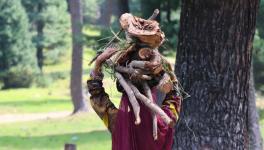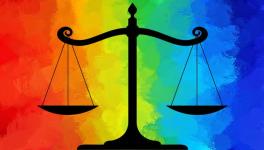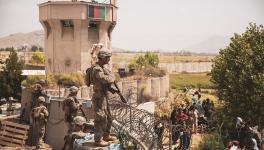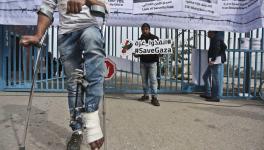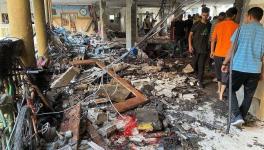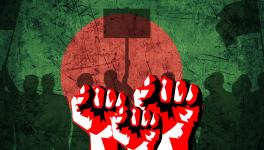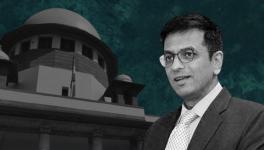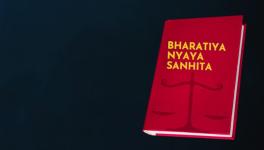Jammu and Kashmir: The Impact of Lockdowns on Human Rights
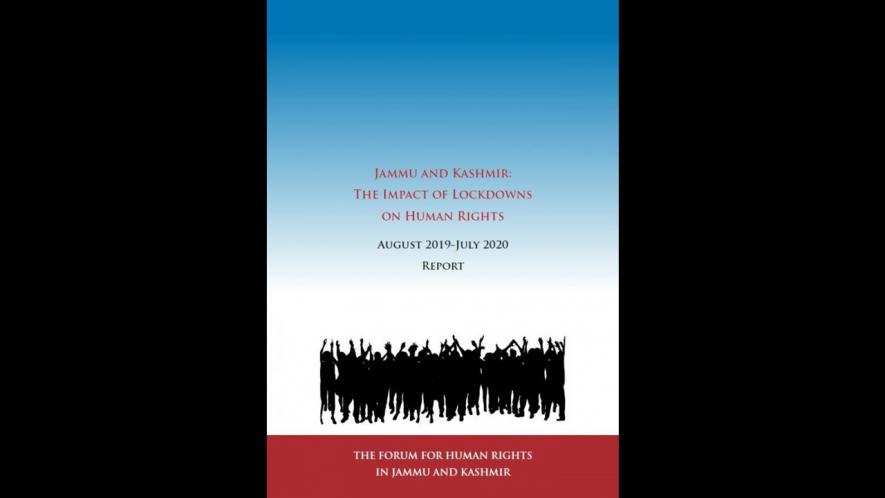
Jammu and Kashmir: The Impact of Lockdowns on Human Rights
The Forum for Human Rights in Jammu and Kashmir comprises an informal group of concerned citizens who believe that, in the prevailing situation in the former state, an independent initiative is required so that continuing human rights violations do not go unnoticed.
The first Report of the Forum probes the impact of the lockdown. Here is a summary:
On August 4, 2019, a day before the President of India voided all clauses of Article 370 of the Indian constitution and suspended the Jammu and Kashmir constitution, the state was put under a total lockdown. Around 38,000 additional troops were flown in to enforce the lockdown, which closed markets, educational institutions and all public spaces for several weeks. Internet and telephone services were snapped, curfew was declared, public assembly was prohibited under Section 144 of the Code of Criminal Procedure, 1973 (CrPC),1 and thousands, including minors and almost all the elected legislators of Jammu and Kashmir (excluding those belonging to the BJP), were put under preventive detention. Five days later, the Parliament of India passed the Jammu and Kashmir Reorganization Act, dividing the state into two Union Territories, of Jammu and Kashmir, and Ladakh. In the months that followed, national political figures were denied permission to enter the former state and were turned back from Srinagar airport.
The economic, social and political impact of these actions, and their long duration – eleven months thus far – have been disastrous. All the former state’s industries suffered severe blows, pushing the majority into loan defaults or even closure; hundreds of thousands lost their jobs or underwent salary deferment or cuts; closures of schools and universities gravely impaired education and added to the trauma of children and parents; healthcare was severely restricted by curfew and roadblocks; the local and regional media lost what little independence they had.
Worst of all, there was no elected representative to advocate the interests of the people of Jammu and Kashmir, since the majority of political leaders were put in preventive detention. Moreover, many of those that were released, gradually over the past eleven months, had to pledge that they would not criticize government actions. Statutory bodies to which citizens could go to seek redress virtually ceased to exist, since all the state commissions — for human rights, women and child rights, anti-corruption and the right to information — were closed when the state was divided into Union Territories, and the Union Government decided not to reinstate them, even though Union Territories too are entitled to independent statutory bodies for oversight.
As a result, there has been a near-total alienation of the people of the Kashmir valley from the Indian state and people. While alienation of the people of Jammu is not as severe, their concerns over economic and educational losses as well as policies such as the new domicile rules, are as substantial.
It is in this context that the Human Rights Forum for Jammu and Kashmir was formed. This Report seeks to document the numerous human rights violations in the former state over the past eleven and a half months (August 4, 2019 to July 19, 2020) under five broad heads: civilian security, health, children and youth, industry and media. Its findings are as follows:
• Counter-insurgency concerns have been given absolute priority over public, civilian and human security, leading to an across-the-board violation of human rights, including the vitiation of protections such as habeas corpus, prevention of illegal detention and strict restrictions on arrest and detention of children. There has been denial of the right to bail and fair and speedy trial, coupled with misuse of draconian legislation, such as the Public Safety Act (PSA) and the Unlawful Activities Prevention Act (UAPA), to stifle dissent.
• In the same manner, the eleven months of lockdown, which saw frequent closures, harassment at barricades and checkpoints, and restrictions on mobile telephony and internet connectivity, have enormously impacted public health, and caused trauma and stress amongst the people of Jammu and Kashmir, violating the rights to health and medical care under the Indian, and Jammu and Kashmir, constitutions. The rights of children to a trauma-free environment have been arbitrarily ignored.
• The impact on education has been particularly severe. Schools and colleges functioned for barely 100 days between 2019 and 2020 (the bulk of which were pre-August 2019). After the COVID-19 pandemic lockdown, the limiting of networks to 2G has made it impossible for online classes to function adequately. Graduate students and teachers have been unable to participate in conferences or have their papers published, causing wilful harm to their careers and violating the rights to education under the Indian, and Jammu and Kashmir, constitutions.
• Local and regional industries have suffered large losses in every sector. Many companies that are heavily or solely reliant on 4G networks that are available in the rest of the country, such as tourism and cottage industries, have been forced out of business. The new domicile rules introduced by the Ministry of Home Affairs and the Jammu and Kashmir administration, moreover, erode prior employment protections for permanent residents of the former state.
• The local media has been one of the worst sufferers. Journalists have been harassed and even had draconian charges slapped on them, for example under the UAPA. Their content, readership and revenues have suffered such a sharp decline that dozens of journalists have lost their jobs. The new media policy, which introduces censorship by the Directorate of Information and Public Relations (DIPR) in coordination with security agencies, is a death blow to the freedom of the press and the freedom of expression.
• Moreover, the Jammu and Kashmir administration’s decision to notify areas of the former state as ‘strategic areas’ for development by the army suggests further expansion of the military presence in hinterland and border areas.
Recommendations
1. Release all remaining political detainees who were taken into preventive detention on or after August 4, 2019. Strictly follow jurisprudence on the rights to bail and speedy trial. Repeal the PSA and any other preventive detention legislation, so that they cannot be misused against political opposition, or amend them to bring them in line with our constitutional ethos. Remove all restrictions on freedom of representation and expression. Strictly implement juvenile protection legislation in letter and in spirit. Release all detained juveniles and withdraw charges against them. Initiate enquiries followed by criminal and civil actions against personnel of police, armed forces and paramilitary forces found guilty of violation of child rights. Withdraw charges under the UAPA against journalists and activists.
2. Balance security considerations with public interest, giving utmost consideration to humanitarian concerns involving the population and eliminating hindrances to the welfare and well-being of the people. Curb the application of Section 144 to only those instances in which there is clear and present danger. Ensure that District Magistrates strictly follow judicial guidelines restricting the use of Section 144. Restore in practice the humanitarian guidelines to be followed when conducting Cordon and Search Operations (CASO), to prevent civilian deaths, injuries or any other damage or loss, and adequately compensate innocent citizens whose houses have been destroyed in Cordon and Search Operations.
3. Ensure that police and paramilitary forces at checkpoints allow smooth passage for medical personnel and patients. Where patients lack transport to hospital, provide aid by making vehicles available. Hold police and paramilitary personnel who harass civilians at checkpoints accountable and initiate appropriate disciplinary action.
4. Restore 4G internet and mobile services in toto. Noting that Jammu and Kashmir has below average access of children to online facilities (see section on children and youth, make additional efforts to provide access for such children.
5. Reinstate all the former state’s statutory oversight bodies, especially those monitoring human rights, such as the Jammu and Kashmir Human Rights Commission and the Jammu and Kashmir Women and Child Rights Commission.
6. Compensate local businesses that were forced to shut down due to the government lockdown between August 2019 and March 2020 and ensure that they are given the government aid they require to the fullest extent possible.
7. Rollback the new media policy and encourage all shades of opinion to be freely and peacefully expressed, as the laws apply in every part of the Indian Union.
The forum includes Co-Chairs Justice Madan B. Lokur, former judge of the Supreme Court of India and Radha Kumar, former member, Group of Interlocutors for Jammu and Kashmir; and the following members: Justice Ruma Pal, former judge of the Supreme Court of India Justice AP Shah, former Chief Justice of the Madras, and Delhi, High Court Justice Bilal Nazki, former Chief Justice of the Orissa High Court Justice Hasnain Masoodi, former judge of the Jammu and Kashmir High Court Justice Anjana Prakash, former judge of the Patna High Court Gopal Pillai, former Home Secretary, Government of India Nirupama Rao, former Foreign Secretary, Government of India Probir Sen, former Secretary-General, National Human Rights Commission Amitabha Pande, former Secretary, Inter-State Council, Government of India Moosa Raza, former Chief Secretary, Government of Jammu and Kashmir Hindal Haidar Tyabji, former Chief Secretary, Government of Jammu and Kashmir Shantha Sinha, former chairperson, National Commission for the Protection of Child Rights Lieutenant-General H S Panag (retd) Major-General Ashok Mehta (retd) Air Vice-Marshal Kapil Kak (retd) RD Sharma, former Vice Chancellor of Jammu University EnakshiGanguly, Co-founder and former Co-director, HAQ Centre for Child Rights Ramachandra Guha, writer and historian Anand Sahay, columnist.
Of particular concern is what the Report has to say about children and the youth:
Responses to the Forum’s questionnaires show that the lockdowns from August 2019, lack of connectivity, presence of police and armed forces, all combined have impacted adversely on children of all age groups in many ways. Between August 2019 and March 2020, the number of days that schools which were open came to a mere two weeks. Even when the Jammu and Kashmir administration allowed schools to reopen, two months after the August lockdown, many parents were not willing to send their children to school as they felt it was unsafe, and with the closure of mobile telephony they would not be able to contact them if needed.
After the COVID-related lockdown (March 24, 2020 till date), when schools and universities moved to online classes, the 2G facility made the classes a charade, since online group sessions require 4G and even downloading assignments or papers is extremely dificult without 4G. In an online survey by Child Relief and You, the findings revealed that school-going children could access online classes on a regular basis in only 27.62 percent of households in Jammu and Kashmir, as against the national average of 41 percent.
A teacher commented, “As a consequence of the abrogation of Article 370, Kashmiri students had to remain away from school for a period of 8 whole months. Now, as these students were ready to go back to school and resume education, the (COVID) outbreak pushed them inside their homes once again, that too with just 2G internet. To battle this prolonged shut-down, while the teacher’s community, along the lines of the world, is trying to conduct classes online… It is a major task’.
1. The Code of Criminal Procedure, 1973 (CrPC) was extended to Jammu and Kashmir on August 9, 2019, through the Jammu and Kashmir Reorganisation Act, 2019, Fifth Schedule Item 9. Before that the Code of Criminal Procedure, Samvat 1989 was applicable. Both the Presidential Orders of August 5 and 6, and the Reorganization Act have been challenged in the Supreme Court of India. Hearings are still to conclude.
2. Child Relief and You (CRY), Rapid Online Perception Study About the Effects Of Covid-19 On Children (May 2020), p.15
These are excerpts from 'Jammu and Kashmir: The Impact of Lockdowns on Human Rights August 2019-July 2020 Report' by The Forum for Human Rights in Jammu and Kashmir. Published here with permission from the forum.
Get the latest reports & analysis with people's perspective on Protests, movements & deep analytical videos, discussions of the current affairs in your Telegram app. Subscribe to NewsClick's Telegram channel & get Real-Time updates on stories, as they get published on our website.









